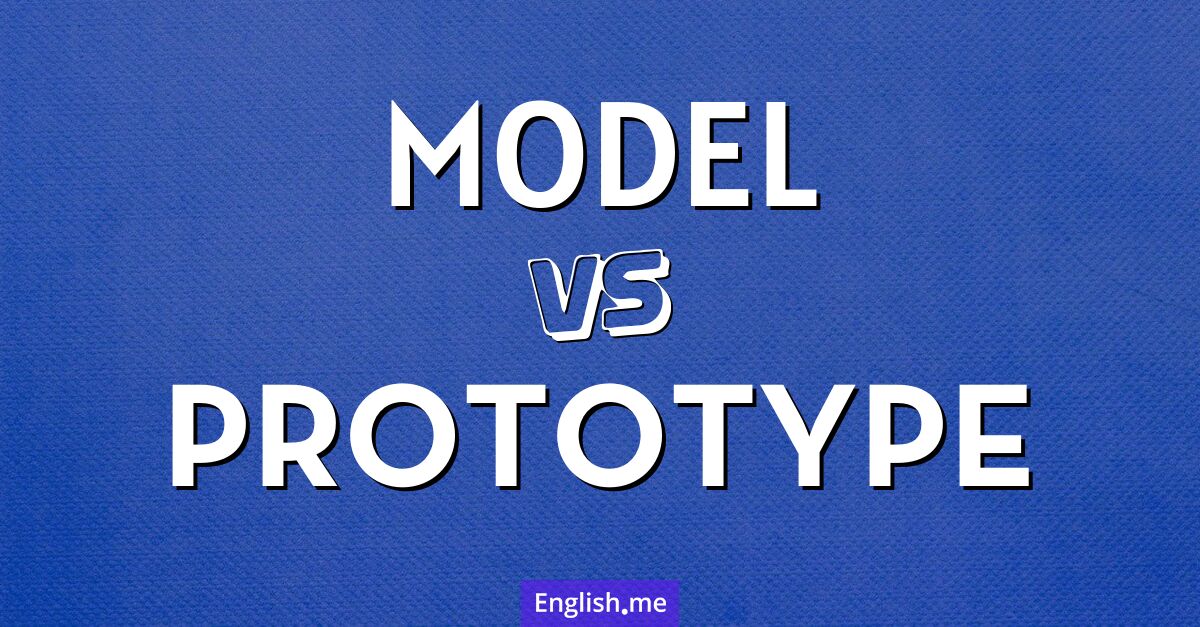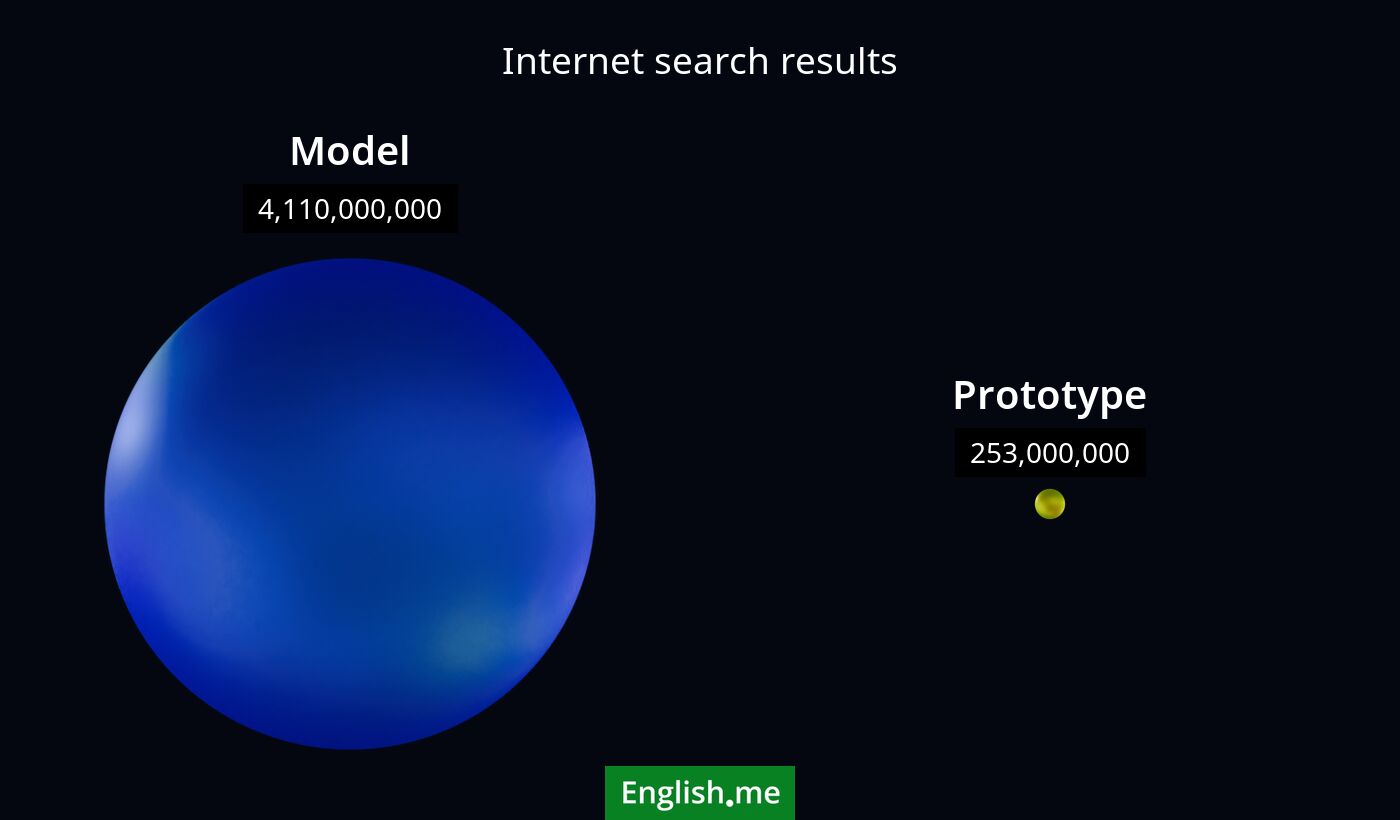"Model" vs. "prototype": designing the blueprint of ideas

 What is similar?
What is similar?
Both "model" and "prototype" are often used in the context of design, engineering, and manufacturing. They refer to representations or preliminary versions of a system or product that help visualize, evaluate, or test various aspects before final production or finalization.
 What is different?
What is different?
A "model" can refer to either a conceptual representation, often used for understanding or simulation, or a specific design/version of a product. It might not be functional or meant for actual use. A "prototype", on the other hand, is a functional version of a product used to test concepts, usability, or performance before full-scale production. It represents an early working version that is often closely examined and iteratively improved.
 Which one is more common?
Which one is more common?

 Examples of usage
Examples of usage
Model- The architect presented a scale model of the new building.
- The mathematical model helped predict the weather patterns.
- She was working on a computer-generated model of the car.
- The engineers built a prototype to test the machine's functionality.
- He showed us the prototype of his new invention.
- The prototype allowed the designers to test and adjust the final product features.

 English
English español
español française
française italiano
italiano deutsche
deutsche 日本語
日本語 polski
polski česky
česky svenska
svenska Türkçe
Türkçe Nederlands
Nederlands